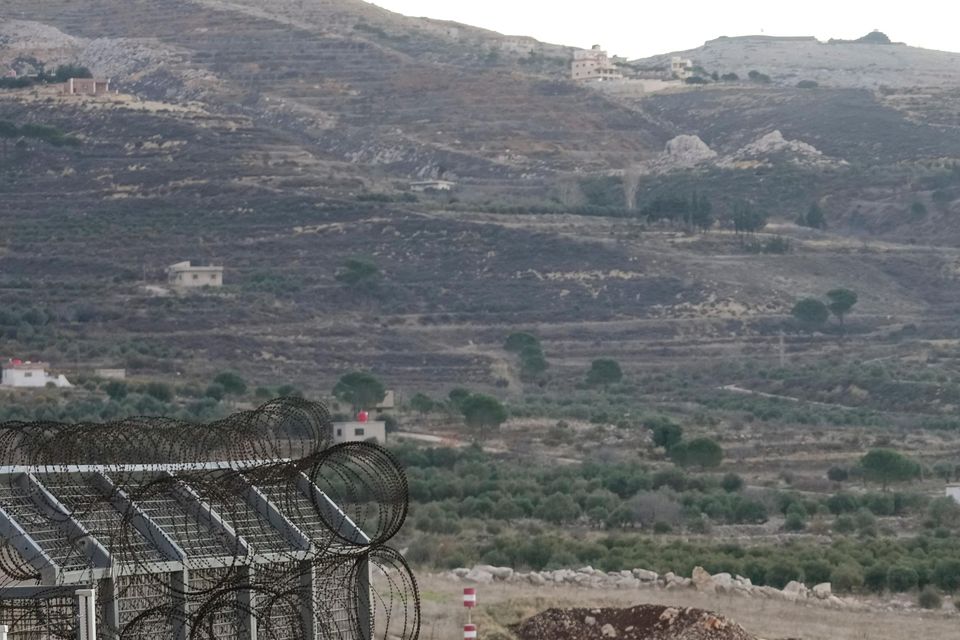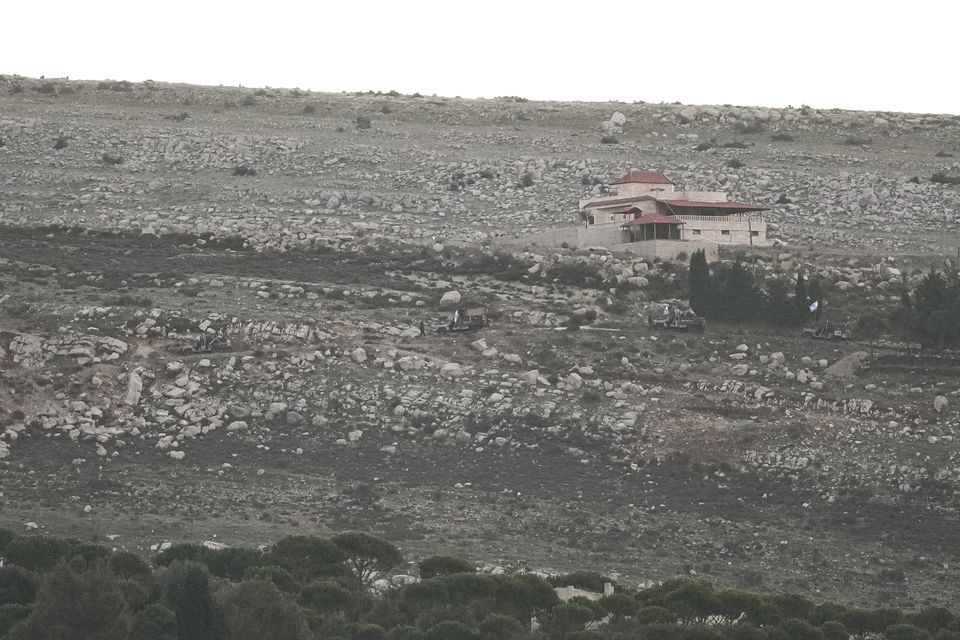Israel has struck suspected chemical weapons sites and long-range rockets in Syria in order to prevent them from falling into the hands of hostile actors, the country’s foreign minister has said.
Syrian rebels reached Damascus over the weekend and overthrew President Bashar Assad’s government following nearly 14 years of civil war, raising hopes for a more peaceful future but also concerns about a potential security vacuum in the country, which is still split among armed groups.
Israelis have welcomed the fall of Assad, who was a key ally of Iran and Lebanon’s Hezbollah militant group, while expressing concern over what comes next.
Israeli soldiers stand guard on a security fence gate near the so-called Alpha Line that separates the Israeli-occupied Golan Heights from Syria (Matias Delacroix/AP)
Israel says its forces temporarily seized a buffer zone inside Syria dating back to a 1974 agreement after Syrian troops withdrew in the chaos.
“The only interest we have is the security of Israel and its citizens,” Gideon Saar told reporters on Monday.
“That’s why we attacked strategic weapons systems, like, for example, remaining chemical weapons, or long-range missiles and rockets, in order that they will not fall in the hands of extremists.”
Mr Saar did not provide details about when or where the strikes took place.
An Associated Press journalist in Damascus reported airstrikes in the area of the Mezzeh military airport, south-west of the capital, on Sunday.
Israeli army vehicles park near the so-called Alpha Line that separates the Israeli-annexed Golan Heights from Syria (Matias Delacroix/AP)
The airport has previously been targeted in Israeli airstrikes, but it was not immediately clear who launched the latest strike.
Israel has carried out hundreds of airstrikes in Syria in recent years, targeting what it says are military sites related to Iran and Lebanon’s Hezbollah militant group, both of which were close allies of Assad.
Israeli officials rarely comment on individual strikes.
Syria agreed to give up its chemical weapons stockpile in 2013, after the government was accused of launching an attack near Damascus that killed hundreds of people.
But it is widely believed to have kept some of the weapons and was accused of using them again in subsequent years.

